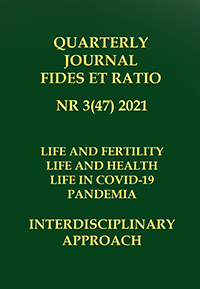Abstract
The aim of the present study was to evaluate the digitally supported pedagogical tool for promoting students' well-being, developed during Erasmus+ project. The research includes the data from 59 fourth-year students in a five-year MA degree program in psychology (50 women and 9 men) aged 22–46 (M = 26.51, SD = 5.43). We used a survey questionnaire developed for the purposes of the study to assess the attractiveness and usefulness of the e-tool, the effectiveness of the different forms of communication used in the tool, and its overall strengths and weaknesses. The mean overall satisfaction with the tool was high. Among the factors contributing to the overall satisfaction with the tool, the content of the tool and the attractiveness of its message form was rated the highest. Online videos were considered to be the most effective form of communication used in the tool. The most appreciated features of the tool were the use of multimedia and remote resources and an attractive form; the weakest side of the tool, according to the respondents, turned out to be its appropriateness for the recipients’ developmental stage. Erasmus+ projects can develop valuable outcomes for school practice. They have also the potential for educating future staff working in various areas of psychological practice. Future psychologists and prevention providers should come into contact with the international nature of education, psychoeducation, and modern prophylaxis already during their studies.
References
Bubber, M. (1992). I and Thou. A Selection of Philosophical Writings, Polish translation by J. Doktór, Warsaw: Instytut Wydawniczy “Pax”.
de Barbaro, B. (1997). Structure of the Family, (in:) B. de Barbaro (ed.), Introduction to the Systemic Understanding of the Family, 45-55, Kraków: Jagiellonian University Press.
Drożdżewicz, L. (1999). General Systems Theory, (in:) B. de Barbaro (ed.), Introduction to the Systemic Understanding of the Family, 9–18, Kraków: Jagiellonian University Press.
Juul, J. (2011). Your Competent Family, Polish translation by D. Syska, Podkowa Leśna: Mind. Juul, J. (2012). Your Competent Child, Polish translation by B. Hellmann, B. Baczyńska, Podkowa Leśna: Mind.
Juul, J. (2012a). To Be a Husband and a Father, Polish translation by D. Syska, Podkowa Leśna: Mind.
Juul, J. (2013). Living in a Family. Values in Parenthood and Partnership, Polish translation by D. Syska, Podkowa Leśna: Mind.
Juul, J. (2013a). Aggression – A New Taboo? Why Do We and Our Children Need It? Polish translation by D. Syska, Podkowa Leśna: Mind.
Juul, J. (2014). Teenagers. When Does Upbringing End? Polish translation by D. Syska, Podkowa Leśna: Mind.
Juul, J. (2016). Instead of Parenting. On the Strength of the Relationship with a Child, Polish translation by D. Syska, Podkowa Leśna: Mind.
Juul, J. (2017). Parent as the Leader of the Herd. Loving Leadership in the Family, Polish translation by D. Syska, Podkowa Leśna: Mind.
Juul, J. (2018). Being Together. A Book for Couples. Polish translation by D. Syska, Podkowa Leśna: Mind.
Juul, J. (2019). Family and Child with a Chronic Disease. Polish translation by A. Schönfeld. Podkowa Leśna: Mind.
Juul, J. (2020). On Boundaries. A Competent Relationship with a Child. Polish translation by D. Syska, Podkowa Leśna: Mind.
Juul, J., Jensen, H., Høeg, P., Hildebrandt, S., Stubberup, M. (2018). Empathy: It Strengthens the Children and Keeps the Whole World Together. Polish translation by D. Syska. Podkowa Leśna: Mind.
Juul, J., Øien, M. (2018). Space for the Family. Polish translation by D. Syska, Podkowa Leśna: Mind.
Kulig, A. (2014). Me-You-Community. Loneliness as a Strategy of Exclusion? Zeszyty Naukowe Centrum Badań im. Edyty Stein, 12, 237-248.
Nelsen, J. (2015). Positive Disciplining. Polish translation by A. Czechowska, A. Rosiak, Warsaw: CoJaNaTo.
Rostowska, T., Borchert, J. (2016). The Process of Parentification in Systems Theory, Roczniki Pedagogiczne, 8, 5-21.
Salamucha, A. (2004). Definitions of Parenting in Pedagogical Literature, Roczniki Nauk Społecznych KUL, vol. 2.
Schier, K. (2016). Adult Children: Psychological Problems of Role Reversal in the Family, Warsaw: Scholar.
Wałejko, M. (2007). Solitude and Isolation – Personal Existential States of the Human Being.
Ethical-Metaphysical Analysis, Roczniki Nauk Społecznych, vol. XXXV, issue 2, 45-66.
Wojciszke, B. (2010). The Psychology of Love, Gdańsk: GWP.
http://www.family-lab.pl/jesper-juul/, access: 11.08.2020.

